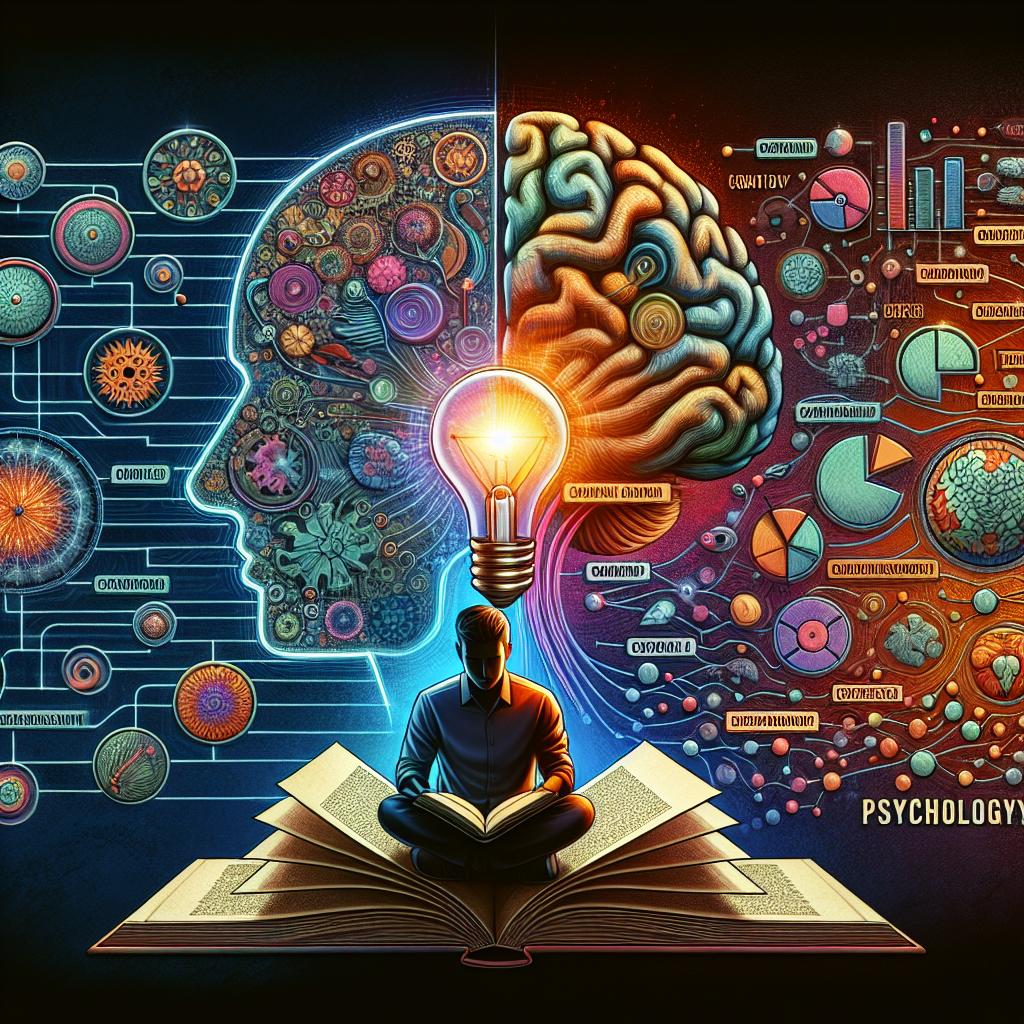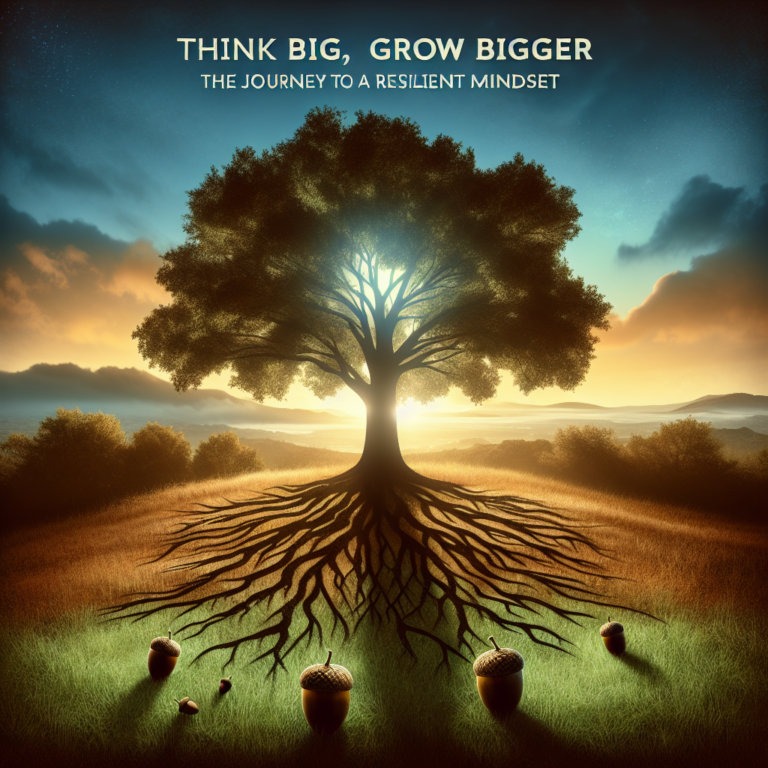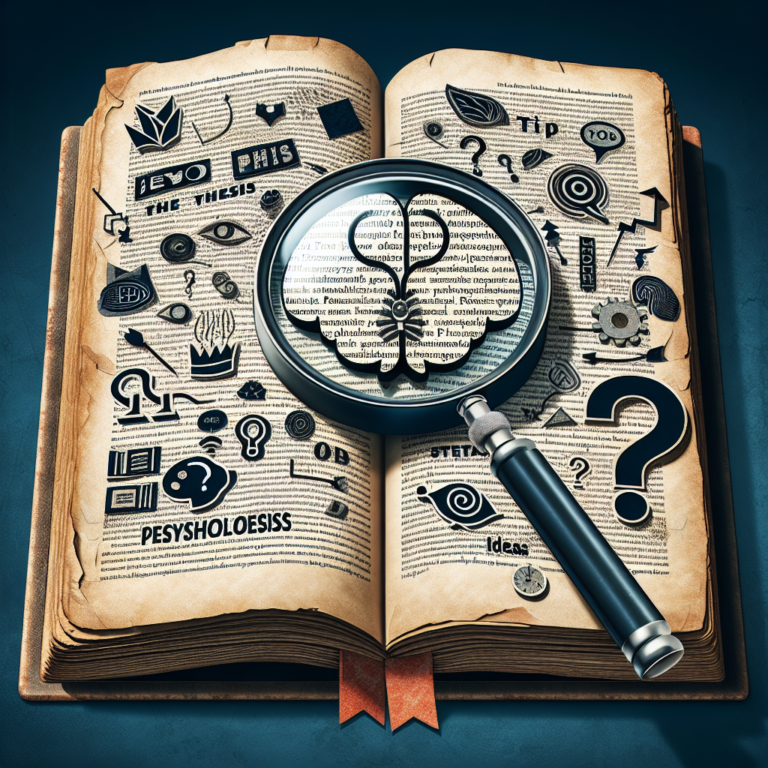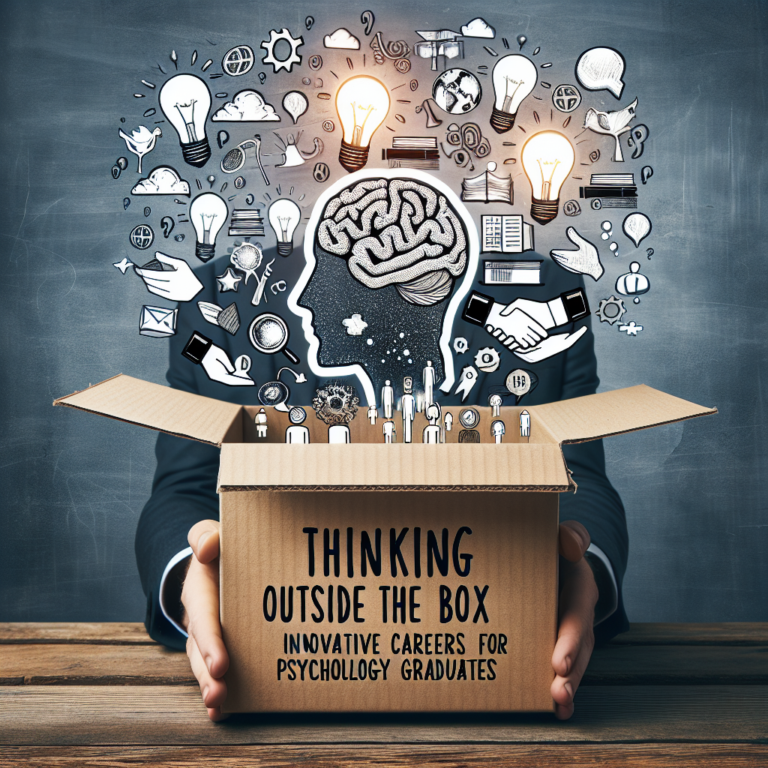
Ultimate Cognitive Hacks: Study Techniques to Boost Your Understanding of Psychology
Understanding psychology is both a fascinating intellectual pursuit and a practical necessity for many. Whether you’re a student looking to excel in your classes or a professional seeking to enhance your grasp of human behavior, effective study techniques can make all the difference. This article will delve into cognitive hacks—study techniques specifically designed to boost your understanding of psychology—ensuring you not only retain information but also apply it in real-world scenarios.
Introduction
Imagine walking into a room filled with complicated theories, diverse research findings, and a myriad of psychological practices. The intricacies of the human mind can seem overwhelming. Yet, armed with the right cognitive hacks, you can transform what feels like chaos into clear understanding. In this ultimate guide, you’ll learn how to harness proven study techniques tailored to the field of psychology. Whether it’s through engaging memory aids, effective note-taking strategies, or the application of psychological principles to your own learning, this article aims to equip you with the tools you need to succeed.
The Power of Active Learning
What Is Active Learning?
Active learning emphasizes engagement, encouraging learners to participate actively in the process rather than passively consuming information. In psychology, where concepts can be abstract and complex, adopting active learning strategies is crucial.
Case Study 1: Applying Active Learning in the Classroom
A prominent psychology professor implemented active learning techniques in her course. By incorporating group discussions, peer teaching, and hands-on experiments, she reported that student retention rates increased significantly. Her students not only remembered the material better but could also apply theories to real-life situations, illustrating the transformative power of active learning.
Key Takeaway: Active engagement with the material—be it through discussion, experimentation, or teaching—can significantly enhance your understanding of psychological concepts.
Techniques for Active Learning
- Summarization: After reading a section, summarize the key points in your own words.
- Peer Teaching: Explain concepts to a study partner, reinforcing your understanding.
- Self-Quizzing: Create questions based on your notes and quiz yourself regularly.
The Feynman Technique
Named after physicist Richard Feynman, this technique requires you to explain a concept as if you’re teaching it to someone else—in simple terms. By breaking down complex theories into digestible parts, you can identify gaps in your understanding.
Table 1: Active Learning Strategies Overview
| Technique | Description | Benefits |
|---|---|---|
| Summarization | Paraphrasing key points | Reinforces memory retention |
| Peer Teaching | Explaining concepts to others | Clarifies understanding and encourages application |
| Self-Quizzing | Testing your knowledge through questions | Identifies weaknesses in understanding |
| Feynman Technique | Simplifying complex ideas | Exposes gaps in knowledge and enhances comprehension |
Cognitive Load Management
Understanding Cognitive Load Theory
Cognitive load theory posits that our working memory has limited capacity. When studying psychology, it’s easy to become overwhelmed by the vast amount of information. Thus, managing cognitive load is essential for effective learning.
Techniques to Manage Cognitive Load
Chunking: Break information into smaller, manageable units. For instance, instead of memorizing a full definition, break it down into key components.
Dual Coding: Combine verbal and visual information. Use diagrams alongside your notes to enhance understanding and retention.
- Spaced Repetition: Instead of cramming, distribute your study sessions over time. Research has shown that spaced learning enhances long-term retention.
Case Study 2: The Effects of Spaced Repetition
A study conducted at a university found that students who employed spaced repetition in their psychology studies performed significantly better on tests than those who used traditional methods. This highlights the importance of pacing your learning to avoid cognitive overload.
Table 2: Cognitive Load Management Techniques
| Technique | Description | Benefits |
|---|---|---|
| Chunking | Breaking information into smaller units | Reduces cognitive overload |
| Dual Coding | Using both visual and verbal information | Enhances memory retention |
| Spaced Repetition | Distributing study sessions over time | Improves long-term retention |
Mind Mapping for Visual Learning
What Is Mind Mapping?
Mind mapping involves creating a visual representation of information. This technique can be particularly useful in psychology, where you often need to understand relationships between concepts.
How to Create Effective Mind Maps
- Start with a Central Idea: Write down the main concept in the center of your mind map.
- Branch Out: Add sub-concepts as branches, connecting them to the central idea.
- Use Keywords and Visuals: Utilize keywords and images for easier recall.
Case Study 3: Mind Mapping in Action
In a qualitative study, students who used mind mapping techniques were able to connect different psychological theories more effectively than those who stuck to linear note-taking. The visual format allowed for an integrated understanding of concepts such as cognitive-behavioral theories and psychoanalytic practices.
Table 3: Mind Mapping Guidelines
| Step | Description | Benefits |
|---|---|---|
| Central Idea | Place the main concept at the center | Focuses the mind on core concepts |
| Branching | Create sub-concepts connected to the main idea | Visualizes relationships between ideas |
| Keywords and Visuals | Use concise words and images | Enhances memory through visual cues |
Incorporating Technology: Apps to Enhance Learning
Recommended Apps for Psychology Study
- Quizlet: A flashcard-based tool that allows you to create custom quizzes.
- Evernote: Useful for organizing notes and ideas, integrating images and links.
- MindMeister: A dedicated app for crafting mind maps seamlessly.
Case Study 4: The Role of Technology in Learning
A university found that students who utilized learning apps reported higher engagement and satisfaction in their psychology courses. This shows how technology can enhance the learning experience and make studying more enjoyable.
Table 4: Recommended Study Apps Overview
| App Name | Purpose | Key Features |
|---|---|---|
| Quizlet | Flashcard learning | Custom quizzes, gamified learning |
| Evernote | Note organization | Integration of images and links |
| MindMeister | Mind mapping | Collaborative mind mapping capabilities |
Real-World Applications of Psychological Concepts
Bridging Theory with Practice
One of the best ways to deepen your understanding of psychology is to apply it in real-world scenarios. Whether it’s through internships, volunteering, or personal experiences, applying psychological principles can provide invaluable insights.
Case Study 5: Applying Psychology in a Professional Setting
Psychology students who interned at mental health clinics reported that their academic knowledge significantly enhanced their practical skills. They found that theories about cognitive behavior were directly applicable when interacting with clients, illustrating the importance of experiential learning.
Actionable Insights for Application
- Seek Internships: Look for opportunities in psychological settings. Real-world experience solidifies theoretical knowledge.
- Engage in Volunteer Work: Working with communities can provide practical context to psychological concepts.
Conclusion
Cognitive hacks are essential tools for anyone aiming to boost their understanding of psychology. By employing techniques such as active learning, managing cognitive load, utilizing mind maps, and integrating technology into your study routine, you can enhance your comprehension and retention of psychological principles.
Remember, understanding psychology is not just about passing exams—it’s about gaining insights into human behavior that can enrich your personal and professional life. As you apply these cognitive hacks, you’ll not only master theories but also develop a profound appreciation for the complexities of the human mind.
FAQs
1. What are cognitive hacks?
Cognitive hacks are strategies and techniques designed to improve the way we learn and retain information, particularly in complex subjects like psychology.
2. How can I apply active learning techniques?
Try summarizing your reading material, teaching concepts to a friend, and quizzing yourself on key points to enhance retention.
3. What is the Feynman Technique and how does it help?
The Feynman Technique involves explaining a concept in simple terms, helping you identify gaps in your understanding and reinforcing your knowledge.
4. Why is cognitive load management important?
Cognitive load management helps prevent mental overload, allowing you to absorb and retain information more effectively.
5. How can I utilize technology to assist my studies?
There are numerous apps available for flashcard learning, note organization, and mind mapping that can make studying more efficient and engaging.
By leveraging these insights, you can confidently embark on your journey to mastering psychology, equipped with cognitive hacks that will not only improve your understanding but also enhance the way you learn. Happy studying!














